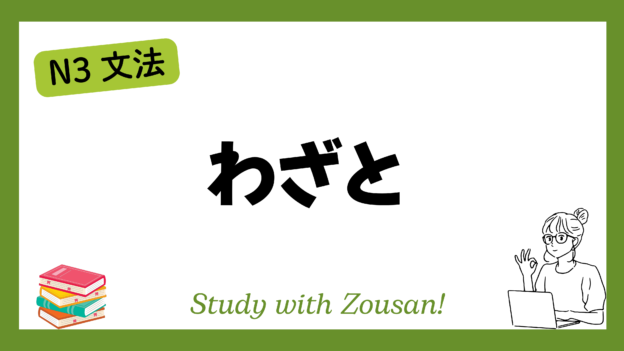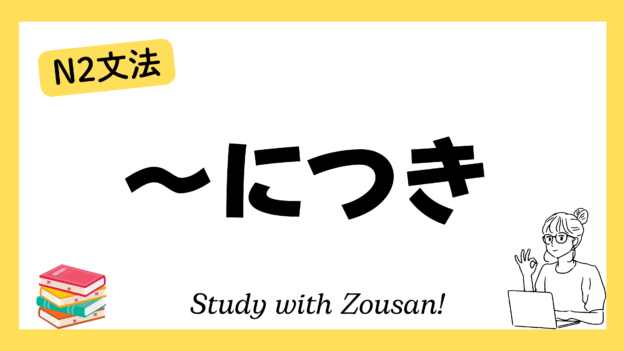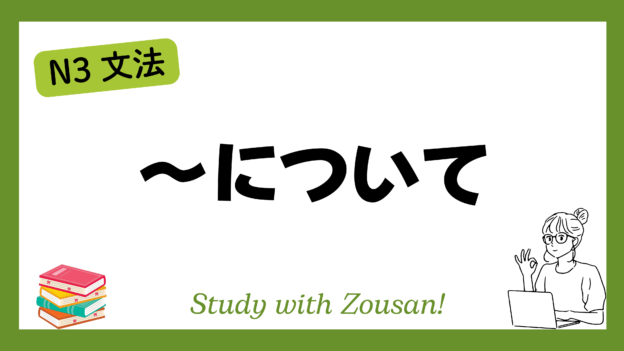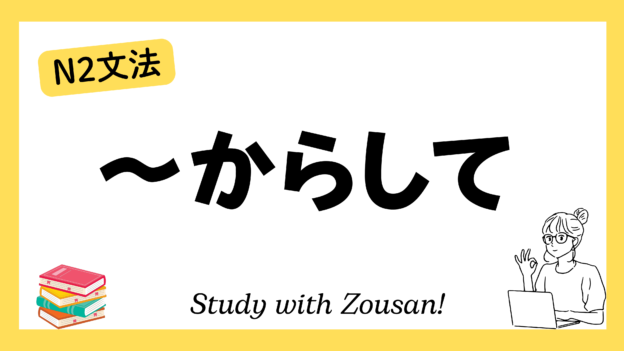N3文法:わざと
Meaning: “On purpose”, “Intentionally”
“わざと” is used to express that someone did something deliberately or intentionally, often when the action was unnecessary or could be seen as negative. It can be translated as “on purpose” or “intentionally”. This phrase emphasizes that the action was not accidental and was done with specific intent.
※Note: This phrase is often used in situations where the intention behind the action is important, and it can sometimes carry a negative or mischievous nuance.
※Unlike “わざわざ,” which often carries a positive or appreciative tone, “わざと” is more neutral and can sometimes imply a negative intention, such as doing something with a specific purpose or even with malicious intent.
Structure:
| わざと + [action] |
Example:
-
-
-
🌟 彼はわざとドアを開けたままにした。
(かれ は わざと ドア を あけた まま に した。)
He left the door open on purpose. -
🌟 彼女はわざと私を無視した。
(かのじょ は わざと わたし を むし した。)
She intentionally ignored me. -
🌟 彼はわざと遅れて来た。
(かれ は わざと おくれて きた。)
He came late on purpose. -
🌟 わざと難しい質問をしたの?
(わざと むずかしい しつもん を した の?)
Did you ask a difficult question on purpose? -
🌟 彼はわざとボールを落とした。
(かれ は わざと ボール を おとした。)
He dropped the ball on purpose. -
🌟 彼女はわざと答えを間違えた。
(かのじょ は わざと こたえ を まちがえた。)
She intentionally gave the wrong answer. -
🌟 わざと嫌なことを言うのはよくない。
(わざと いやな こと を いう の は よくない。)
It’s not good to say something unpleasant on purpose. -
🌟 彼はわざと静かにしていた。
(かれ は わざと しずか に していた。)
He remained silent on purpose. -
🌟 わざと間違えて、冗談を言ったふりをした。
(わざと まちがえて、じょうだん を いった ふり を した。)
I made a mistake on purpose and pretended it was a joke. -
🌟 彼はわざとゆっくり話して、みんなを待たせた。
(かれ は わざと ゆっくり はなして、みんな を またせた。)
He spoke slowly on purpose, making everyone wait.
-
-









